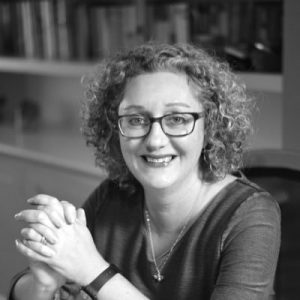In this month’s interview we are talking to Counsellor and Child therapist Sarah Cavaliere, she shares with us her journey in becoming a counsellor and her approach to counselling.
Sarah has six years post-qualified experience in counselling parents and children and is a registered member of the British Association of Counsellors and Psychotherapists (BACP) working in accordance to the BACP Ethical Guidelines. Through non-judgemental and confidential counselling sessions, Sarah supports children and parents with the aim of improving both their emotional wellbeing and their relationships with those around them.
What attracted you to counselling and what made you want to become a counsellor?
The short answer is that after I had my two children, I wanted to re-train as I was not happy in my job in recruitment and I had a vague sense that I would like to ‘work with children’. In hindsight, I realise that it was a lot more complicated than that. I was looking for answers about my self, my childhood experience, my relationship history and most relevant at that time, what did it mean to me to be a mother.
Where and how did your career start?
In 2005 I began a one year Certificate in General Counselling at Birkbeck University, 3 hours a week and this gave me a basic grounding in counselling. I then discovered Place2Be, a charity that provides counselling services to schools. Place2Be run excellent training programmes from taster days and foundation courses to professional qualification. In 2010 after a number of years working as a Volunteer Counsellor for Place2Be and working my way through their training programmes, I qualified with a Postgraduate Diploma in Counselling Children in Primary Schools. Around the time I qualified, I was lucky to get a paid counselling role with Place2Be working in a primary school.
What type of counselling do you specialise in?
I am qualified as an integrative counsellor and specialise in working primarily with children. I work long term, using a combination of play, art and talking therapies. I also work with adults in private practice, specifically with parents who seek out therapeutic support around their family relationships.
What is your approach to counselling and do you counsel specific age groups?
Given my training is in counselling children in primary schools, I specialise in working with children up to around the age of 12. My approach is based on facilitating change and improved emotional well being through forming a trusting relationship and a safe space in which children are able to explore difficult feelings and emotions via the media of play and creative art. Working with both adults and children, my approach is to listen, to be empathic and to help the client make links between their own life history and their current struggles in order to better understand their behaviour, their relationships, their fears and anxieties
In your professional opinion why do you think counselling is important?
At some point in our lives, we all struggle with our emotions and go through difficult periods. For children particularly, early intervention is key to avoid difficulty and challenging behaviour worsening and leading to poor mental health as adults. Where counselling differs from mentoring or life coaching is that the counsellor does not give advice or offer an ‘expert view’. The client is ‘the expert’ in themselves and through the provision of a ‘safe space’ which is confidential, non-judgemental and regular, the counsellor supports the client in exploring their own thoughts and feelings. This results in the client being able to feel listened to, heard and validated and leads to them making changes in their lives and this impacts their own emotional well-being and that of those in close relationship to them.
Do you think that there are still some stigmas attached to counselling or receiving counselling?
I think that this has changed a great deal in recent years for the better. The current coverage and awareness via the media has helped to normalise mental illness. In some cases, some stigma still remains, and it is important that the message is continually reinforced that looking after our emotional well-being is as important as looking after our bodies.
What would you say to someone who felt they needed counselling but were unsure about sharing their privacy or their issues with another person?
I work with clients on a long term basis and this is for specific reasons. It is necessary for a relationship of trust to be built and this can take varying amounts of time depending on a client’s personal history. Once this relationship is secure, the client starts to feel safe and is then able to bring their innermost thoughts and feelings, both ‘positive’ and ‘negative’ to the counsellor. The counselling relationship is confidential and non-judgemental and the content of the sessions is not shared with other people or agencies. There are exceptions -all counsellors must have regular supervision with a counsellor more highly qualified than themselves and clients’ cases are discussed in this similarly confidential relationship to protect both parties and to ensure the therapy is ethical and safe. We also have a duty of care to report any safeguarding concern to the relevant bodies. Like most counsellors, I work according to the Ethical Guidelines of the BACP (British Association of Counsellors and Psychotherapists). Anyone who is interested in reading these guidelines can access them via the BACP website (www.bacp.co.uk)
What is the most rewarding part of your job?
I enjoy the privilege of being invited into the world of those who come to seek my support and help. I like to learn about people and relationships – being a counsellor means you are on a continuous journey of self awareness and this gives me satisfaction and pleasure.
And lastly, how do you like to unwind in your free time? Any specific hobbies?
I love to read – nothing particularly high brow – and enjoy a good film or TV drama. My family and friends are my world away from work.



